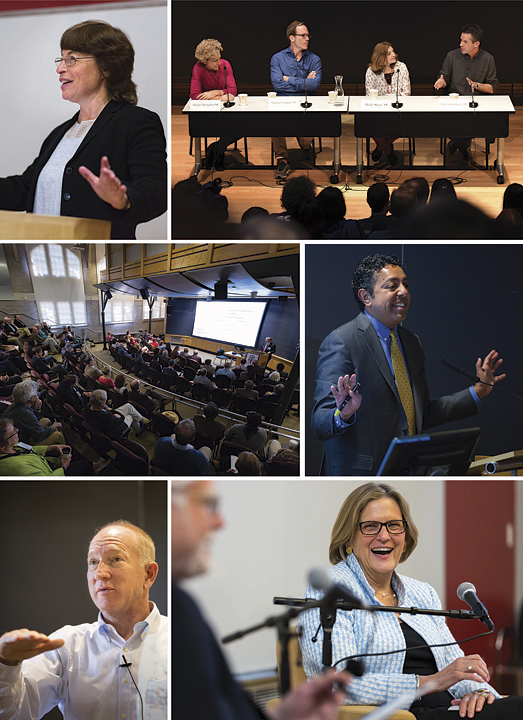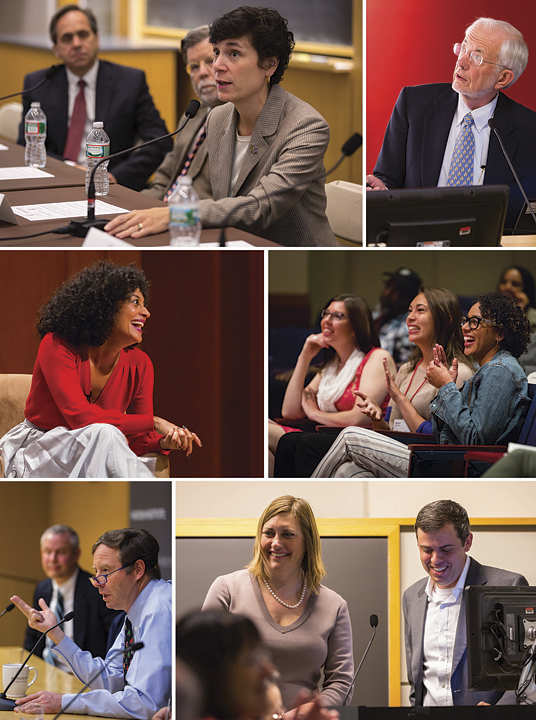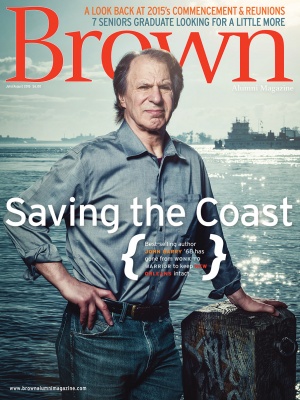Few cases better demonstrate what’s wrong with health care than that of the person who shows up in a hospital emergency room complaining of chest pains. Why is it that at some emergency departments 83 percent of such persons are admitted, while at others it’s as low as 26 percent?

No Commencement forum could ever be described as typical, but “Who Pays?” was part of the longstanding tradition of looking at important societal challenges through thoughtful eyes. When the speakers have been in the trenches, the thoughtfulness is fueled by a gripping immediacy, as was the case at “Responding to Ebola: Perspectives from the Front Lines,” a retrospective look at how the world responded to the Ebola crisis in West Africa. Panelists Timothy Flanagan, a Brown professor of medicine; Rebecca Reece, a Brown clinical professor of infectious diseases; and Michael A. Smit, a Brown assistant professor of pediatric infectious diseases all praised the response by the U.S. Centers for Disease Control while condemning the global health community and the Obama administration for responding slowlyand, in some cases, ineptly.

Not all of this year’s forums were quite as serious. At “The Magic Penny Effect: Finding Individual Happiness Through Your Relationships to Others,” a few dozen people in a Smith-Buonanno classroom sang a children’s song:
Love is something if you give it away.
Give it away, give it away.
Love is something if you give it away.
You end up having more.
One forum focused on the rapidly changing ways we communicate. “Storytelling in a Changing Media Landscape” panelists Michael Costigan ’90, a producer at Costa Films; Simon Kinberg ’95, a film writer and producer known for writing X-Men: Days of Future Past; Susan Margolin ’85, the president for docudrama at Cinedigm; and Holly Sklar ’85, a story analyst at Warner Brothers agreed that no matter the method of delivery, all media need great stories. “Good storytelling is ultimately what always matters,” Sklar said. Want to know what the next big thing in Hollywood will be? A virtual reality headset called the Oculus Rift. Go ahead. Google it.
Watch videos of some of the forums on Brown's YouTube feed.





